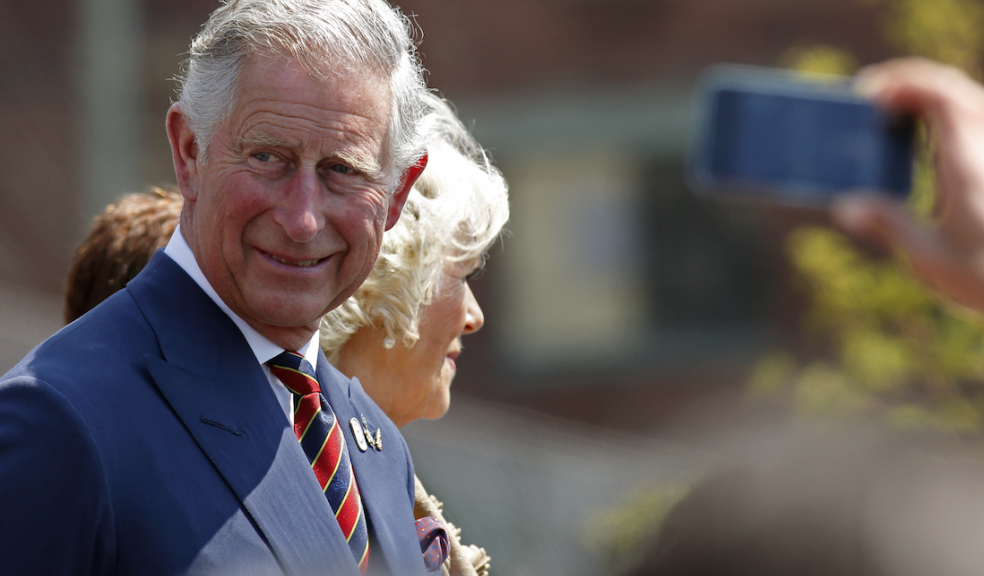
Royal appointment for Plymouth academics
Academics from Plymouth University will be among those meeting the Prince of Wales and Duchess of Cornwall during an event to raise awareness of the problem of marine litter.
Microplastics expert Professor Richard Thompson and Dr Gregory Borne, Director of the University’s Sustainability and Surfing Research Group, will be sharing experiences and ideas of how to reduce the amount of litter on our coastlines.
The royal visit is part of an Ocean Plastics Awareness Day, being organised by Surfers Against Sewage, the Marine Conservation Society and Clean Cornwall on Fistral Beach, Newquay, on Wednesday (July 22).
The day will give NGOs, local and national government, academia and industry an opportunity to commit to exploring and delivering pilot schemes to prevent the flow of plastics to local beaches and reuse plastic waste removed by local cleansing activities.
It will also see the launch of a Statement of Intent signed by participating NGOs, local government, academia and businesses to explore, develop and deliver innovative circular economy pilot projects. Plymouth University, its Sustainability and Surfing Research Centre and the Marine Institute are among those to have already signed up.
During the event, their Royal Highnesses will see first-hand how community action in the county is bringing thousands of people together to help combat the menace of marine plastic litter.
Professor Thompson, of the University’s School of Marine Science and Engineering, has been working on the effects of marine litter for over 20 years and published numerous studies about its impact on human and marine environments. He said: ‘’Marine litter is a global environmental problem affecting wildlife and spoiling coastlines worldwide, and I am delighted the Prince of Wales and Duchess of Cornwall are addressing this important issue. I hope to have the opportunity to discuss not only the problems, but also the solutions, which I firmly believe must focus on reducing inputs of litter to the ocean and utilising end-of-life plastics as a resource via recycling in a circular economy.’’
Dr Borne recently co-edited Sustainable Stoke – Transitions to Sustainability in the Surfing World, a new book exploring the challenges to be faced in making surfing sustainable. He added: “It is a great privilege to be invited by SAS to participate in this event and meet their Royal Highnesses. I am looking forward to the opportunity to highlight some of the ground-breaking and world leading research that is being conducted at Plymouth University, especially that which is focused on surfing and sustainability. This is a real testament to surfing's capacity to inspire and influence positive change for the environment both within and beyond the surfing community.”
Surfers Against Sewage, the Marine Conservation Society and Clean Cornwall have collectively enlisted the support of well over 30,000 people to clean up beaches around the UK in the past year.
HRH The Prince of Wales has long taken an interest in the health of the marine environment and the need to address waste. The Prince of Wales’s International Sustainability Unit has attempted to integrate conversations on marine plastic waste with those focusing on the circular economy at a global level, and the activities in Cornwall showcase what can be done to address waste locally.
There are already some great examples of recycling and recovery projects in Cornwall that contribute to the circular economy, such as the Kimo Fishing for Litter scheme, fishing net recycling projects and the Finisterre bottles to clothing initiative. Used as models of best practice, these and other schemes, showcased on Ocean Plastics Awareness Day, could then be rolled out in other parts of the country.
Hugo Tagholm, Surfers Against Sewage Chief Executive says: “We are delighted to be working with Plymouth University – and in particular the Marine Institute – on this and a number of other projects, as the expertise of its researchers and students can really help enhance awareness of this local and global issue. Cornwall has some of the most impressive coastline in the UK, and they are now the focus of the growing community effort to tackle marine litter. Annually, Surfers Against Sewage not only works with over 15,000 grassroots volunteers to remove plastic waste from the beach, but is also collaborating with pioneering projects to use waste plastics as a key resource in producing new products, from skateboards to carpet tiles.”












